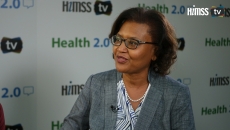Population Health
The pressure on physicians and hospitals to address social determinants will likely increase, as they've been a focus of payers and providers.
Dr. Joia Crear-Perry, founder and president of the National Birth Equity Collaborative, describes how tech-driven connection to care can help reduce the elevated rates of maternal mortality across socioeconomic and racial lines.
Patient experience can be a constraining lens so Texas Health Resources is focusing on the consumer experience, says Winjie Miao, senior executive vice president and chief experience officer.
Homelessness is a social determinant of health that can influence the quality and quantity of healthcare services received.
In high-priced areas in California, the partnership is working to keep affordable apartments from becoming the next million dollar condos.
Dr. Elaine Batchlor, CEO of Martin Luther King, Jr. Community Hospital - which attained HIMSS EMRAM Stage 7 - discusses building healthcare infrastructure from scratch.
Health 2.0 co-founder Matthew Holt will be among a panel of experts to speak on "Big Bets in Insurtech."
The findings come at a time when the fate of the ACA is in the hands of a federal appeals court.
Racial disparities show New Jersey's maternal mortality rate is 38.1 deaths per 100,000 births, but among African-American women, it's 102 deaths.
Hospital closures represent a not-often reported social determinant of health, as they stress patient resources.


